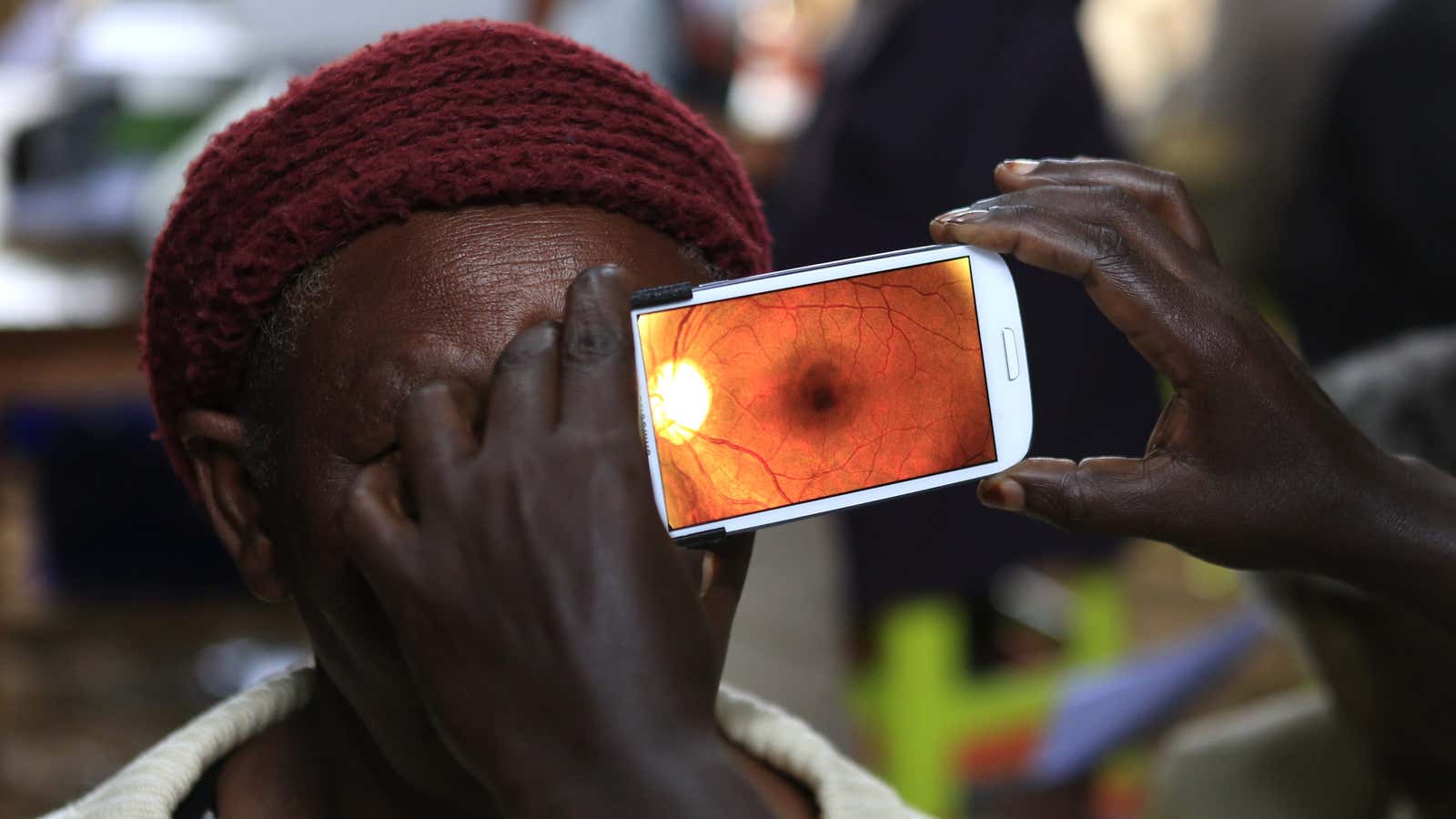The African health tech sector is booming, thanks in part to increased opportunities presented by the Covid-19 pandemic.
The number of health tech startups that have been funded in recent years has increased drastically, and so has the amount of funding. Capital for health tech startups increased by 257.5% from 2019 to 2020, according to a report by Disrupt Africa, a website for news on African tech startups.
While fintech is still taking up the majority of the funding, health tech is catching up, the report shows. Disrupt Africa’s report excludes companies that are spin-offs of corporates or other large entities.
Spotlight on health tech innovators
Six of the 30 startups featured in an inaugural list published by the Yale Africa Startup Review last week were in health tech, the most of any category. An alumni and student-led publication featuring founders and startups “shaping the future of Africa with entrepreneurship,” the list included Egypt’s Chefaa, South Africa’s RecoMed, and Malawi’s Apex Medical Laboratories.
During the pandemic, traditional healthcare providers responded to the outbreak by adjusting their models, and adopting new tech products such as virtual healthcare platforms. Health healthcare startups did the same.
“The gap in healthcare services in Africa is huge, leaving behind growing opportunities for health-tech startups to fill,” Dr Rasha Rady, co-founder and COO of Chefaa, tells Quartz. The GPS-enabled platform allows patients to order, schedule, and refill prescriptions and other pharmaceutical needs. “After [the] Covid crisis, the role of health tech startups in narrowing that gap was apparent, confirming value propositions, and decreased investment risk.”
Many African countries implemented strict lockdowns and movement restrictions when Covid-19 struck, increasing the uptake of virtual or remote health tech services.
Chefaa’s orders have risen almost 300% since the onset of the pandemic, Rady says, as users seek to get their medicine safely.
Healthcare stakeholders adopt tech
With many patients forced stay at home, “traditionally laggard” healthcare stakeholders, including doctors and hospitals, were forced to turn to health tech platforms, says Sheraan Amod, the founder and CEO of RecoMed, an online healthcare marketplace and booking platform.
“Practically overnight, the industry needed to rethink how it drove access to, delivery, and overall management of healthcare,” he says.
Another factor enabling the growth of Africa’s health tech sector is a recognition of the role of the private sector in health in sub-Saharan Africa, where health is mainly the subject of government regulation and support, says Kundai Moyo, co-founder and operations director of Apex Medical Laboratories. The startup offers mobile specimen collection for clinics and patients and processes the results in mobile labs, using electronic health systems. People send test requests to the lab on WhatsApp or make phone calls.
With emerging diseases, especially Covid-19, Moyo says, there is a realization that the private sector has also a role to play in health.
“Everyone always thought that the health sector should be left to the government,” she says.
Potential for positive disruption
Sharon Mwale, co-founder of the Yale Africa Startup Review, says health tech can positively disrupt Africa’s healthcare by helping the continent “leapfrog” what industrialized countries are able to do. She cites M-Pesa, a Kenyan banking mobile banking service, as an example of a model innovation that disrupted traditional banking in this way.
“We can skip through the middle pieces of incremental innovations and technology integration and get to the point where this is gonna be really efficient and really beneficial for patients as well as consumers before they become patients,” Mwale says. “We don’t have to go through that process of trying and fixing,” she adds. “A lot more people are interested in that sort of innovation, and investing in that space.”





